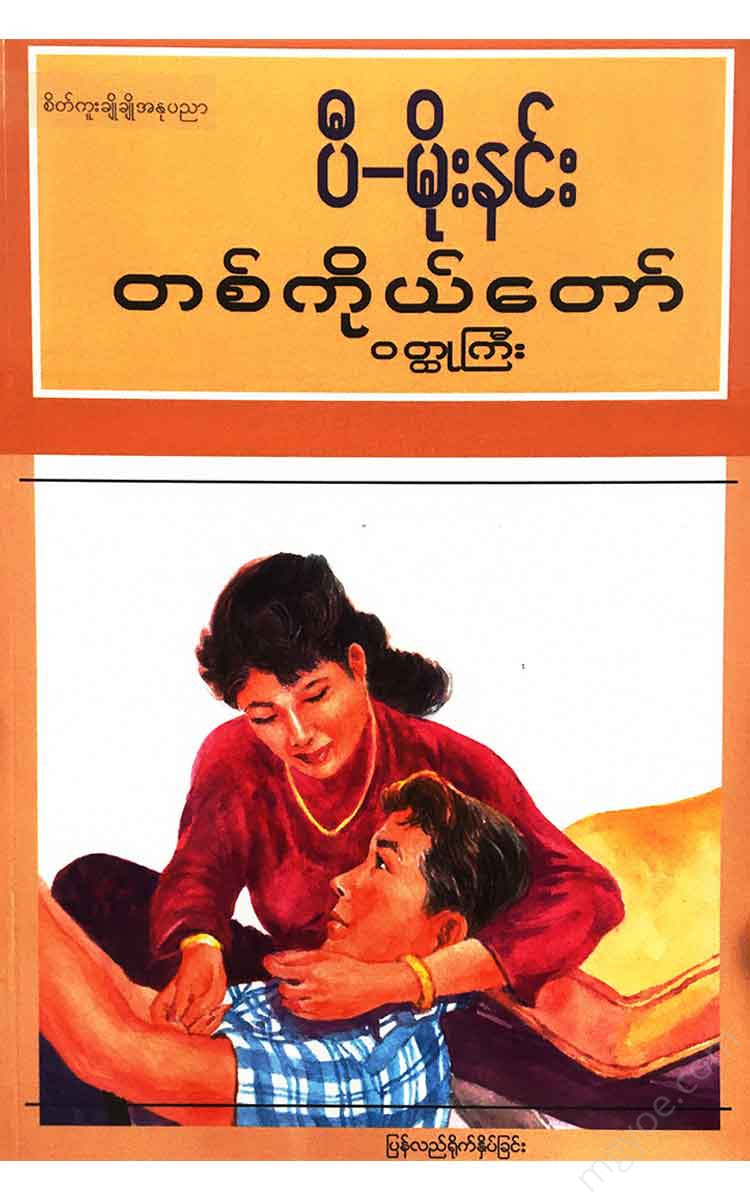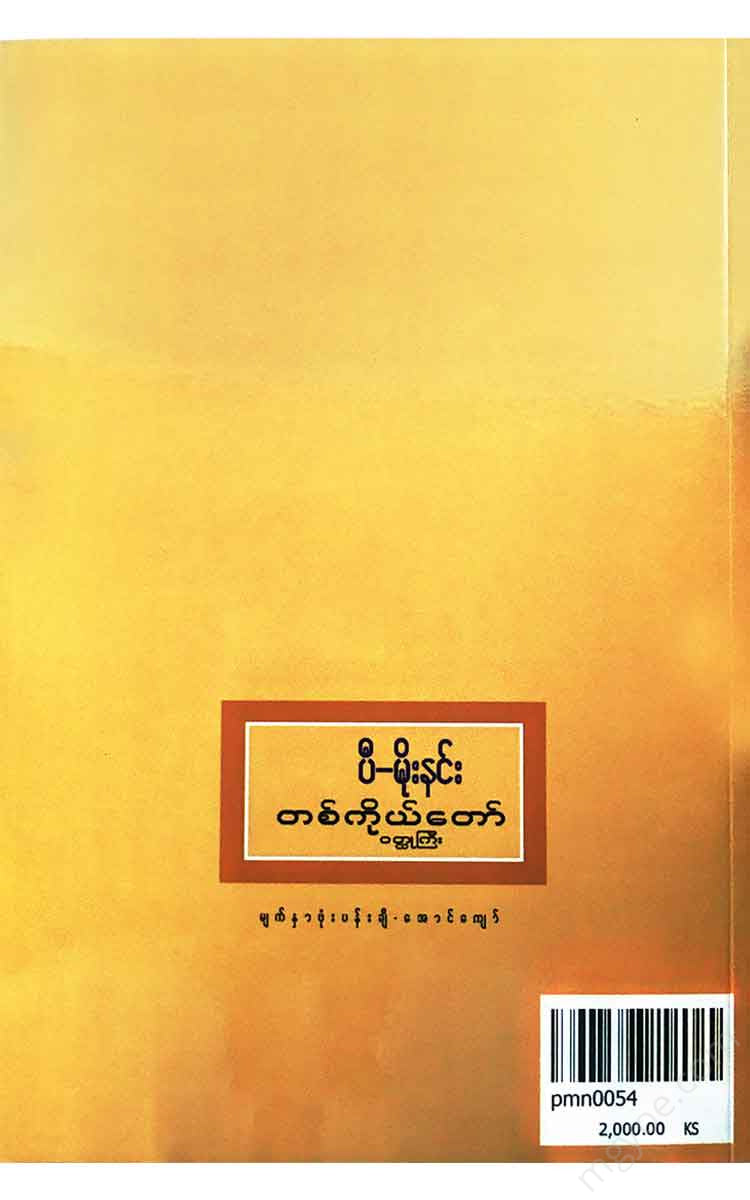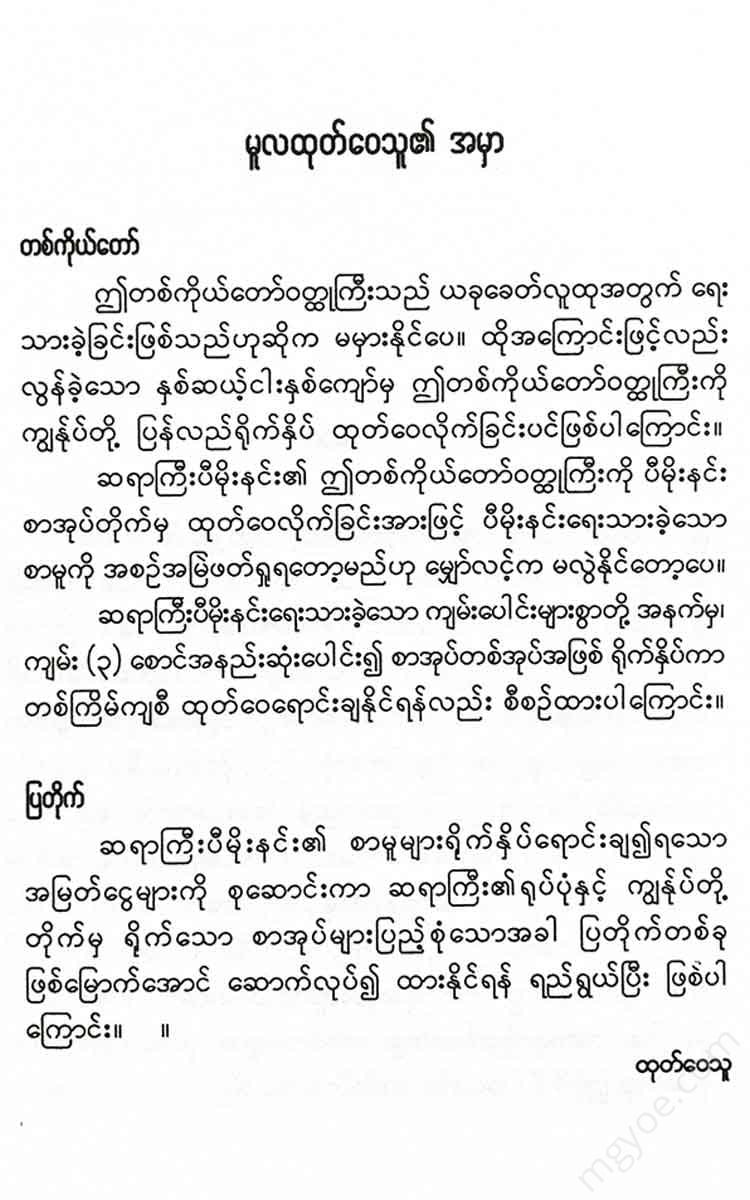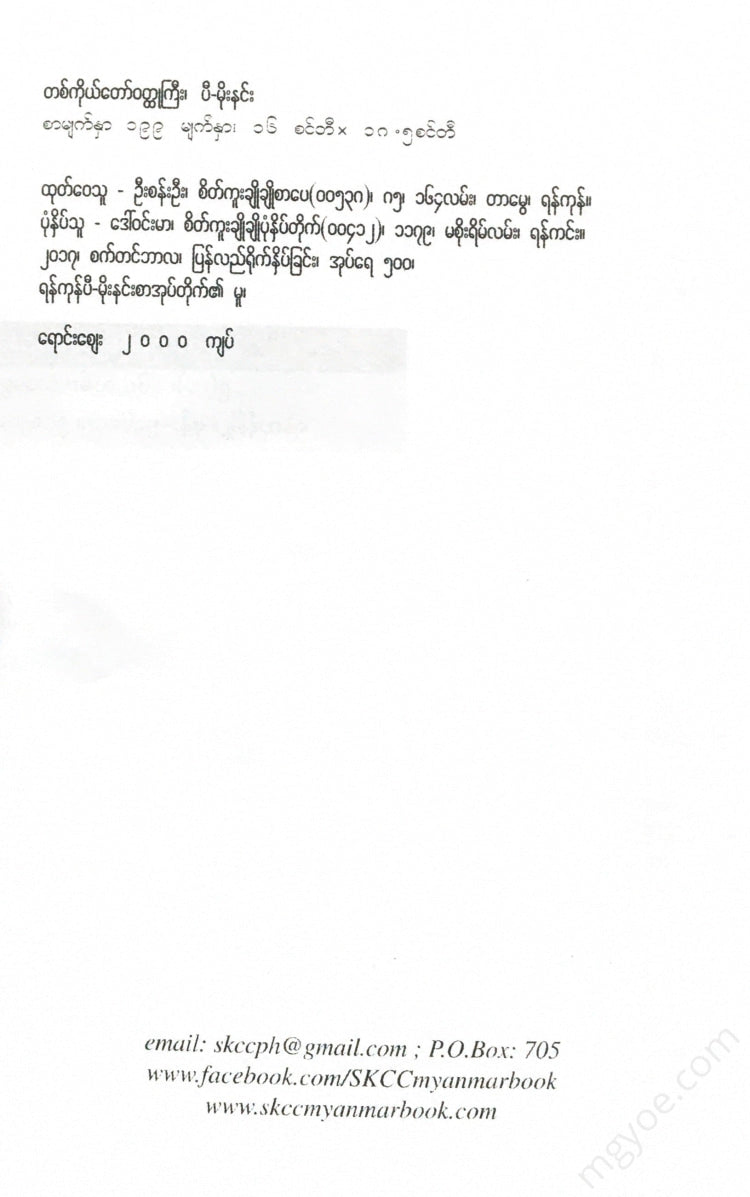စိတ်ကူးချိုချိုစာပေ
Morning - Solo
Morning - Solo
Couldn't load pickup availability
Chapter (1)
Standing before the court, elegantly dressed, was a young man with folded hands, his head bowed, not looking at anyone. He was about the same age. The courtroom was packed with spectators on the day of the verdict, as the notorious murder had become a national sensation.
The defendant's strong, determined, and manly face could not have done such a heinous deed. However, the crime was so obvious that it caused great astonishment in the minds of all the spectators who watched. The young defendant was in a state of shock, thinking, "They have sent me here unjustly." However, the spectators were even more shocked. Because the person killed was the patriotic leader, U Tun Thein.
The prosecutor, in a seemingly easy case, performed his duty with a sad expression, and with all his might, entangled the defendant in a web of false pretenses, so that he could not escape. The defendant, however, was a young man who was trying to make amends. His pretenses were as follows.
The young man, Maung Shardu, who had passed his B.A. and was only one year away from taking the B.A. exam, was a very bright person, with many outstanding achievements and a path to great success. Now, because of this incident, he is about to lose his precious life, which was cut short at a young age.
However, the law always follows its own path, like a snake that bites if it is not touched, and if it is touched, it bites if it is not kept. The young man in front of us has violated the law of the snake, so no matter how valuable a man he is, he must be judged according to the law.
But there is one thing to consider, the fact that this man's extreme behavior is highly suspicious. A young man who understands the law, even if he is a criminal, would not have committed this crime in such a conspicuous manner. According to my friend the prosecutor, this young man
“The deceased lived in a room next to the deceased U Htun Thein on the upper floor of the restaurant on Dalhozi Road. According to the testimony of the restaurant owner, the accused was the only one in the room talking to U Htun Thein late at night. Therefore, it is an undeniable fact that U Htun Thein, who was stabbed to death in the morning, said, ‘If not by the accused, then by whose hand did he die?’ Moreover, this child was a person who supported his education. He died a few days ago and was left without a supporter, so he was very poor. U Htun Thein also had a lot of money in his hands. When the accused borrowed money from U Htun Thein, U Htun Thein did not pay it back, so there was a lot of arguing. When U Htun Thein died, there was not a penny left in U Htun Thein’s safe. After U Htun Thein’s death, he was able to quickly pay off the debts that Maung Shardu had, and Maung Shardu and U Htun Thein, who had been living together for months and could enter and leave each other's rooms, was undoubtedly a major factor in the crime. However, it was a very surprising fact that a man with such talent could commit a crime so openly. If he could not control his anger and accidentally beat her to death, he would have done so openly. In a case where he killed her out of greed for money, which was not related to anger, he would have done so openly, which was undoubtedly a major factor in the circumstances of the case.
But in the case of murder, convictions are rarely based on physical evidence. Convictions are more likely to be based on the connection of circumstantial evidence. In this case, the obvious facts are the only factors that support conviction, and there is no need to eliminate them and search for other factors that do not appear. Therefore, the honest judge of sessions has only one verdict to give, and the jury's opinion is the only one left.
The jury also completely agreed with the prosecutor's words, leaving the young man with only one path left. The audience eagerly awaited the verdict. Because they were angry and wanted to avenge Maung Thadhu for the sake of the patriot U Htun Thein.
The jury went into the deliberation room and unanimously found the defendant guilty. They unanimously agreed that the case was so obvious that there was no need to consider it further.
When they came out again, they were questioned in the courtroom, and when one by one they declared themselves innocent, the judge himself stood there, holding his pen in his hand. The prosecutor, with his eyes wide open, was about to start a fistfight with the jury, and he was restless. The audience, however, was as wild as a Chinese rat, and they were all snarling and howling like snakes. What has the law done in this case? Why do they want to let this creature go? They were all shouting.
The defendant himself seemed to not believe the words of the jury. He could not believe that he had escaped this terrible fate. He looked at the judge's face, wondering what the judge must think. The judge looked at him, nodded, and said with a resigned expression, "You are not guilty. The court has acquitted you." When the verdict was pronounced, Maung Sadhu seemed to have gone into a stupor.
Then the police dragged him away, but the crowd waiting outside was so large and angry that they had to take him from an unknown place, quietly put him on a horse-drawn carriage, and drive him away quickly. The crowd, whose anger was so intense that they were like a raging mob, rose up and went everywhere to punish the accused who had not been punished by the court, with stones, bricks, sticks, swords, fists, and hands.
When the jury went in to deliberate, they thought the defendant was guilty, and when they came out again, how could they change their minds and go? When they got to the deliberation room, something strange happened. That was because one of the jurors, whom they had never met before, and who was not acquainted with any of them, expanded on the words of the defense attorney and said that this defendant was innocent, that things could happen in the world that were completely different from what people believed, that what they saw and heard was one thing, and what they actually did was another, and that if this defendant were convicted, the course of justice would be perverted.







